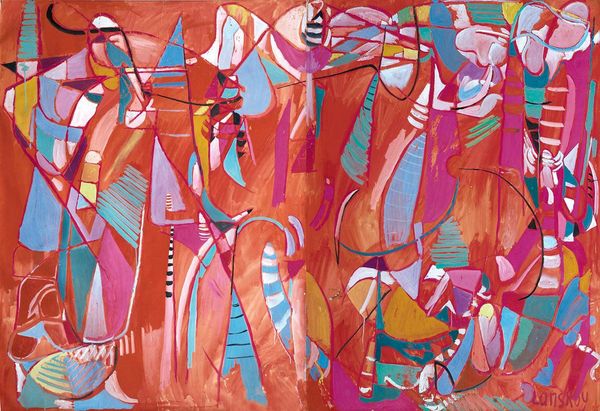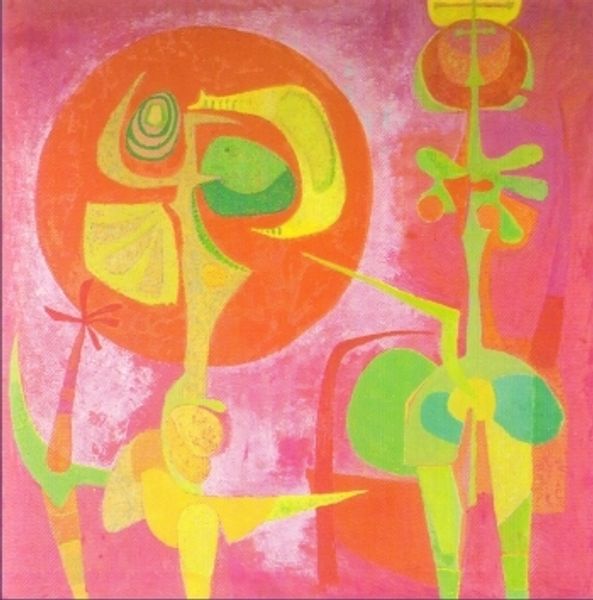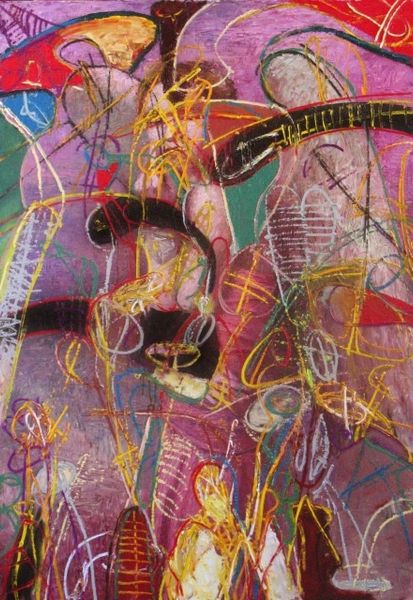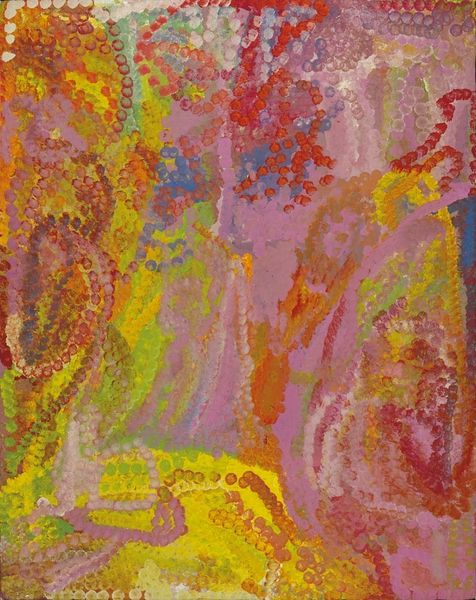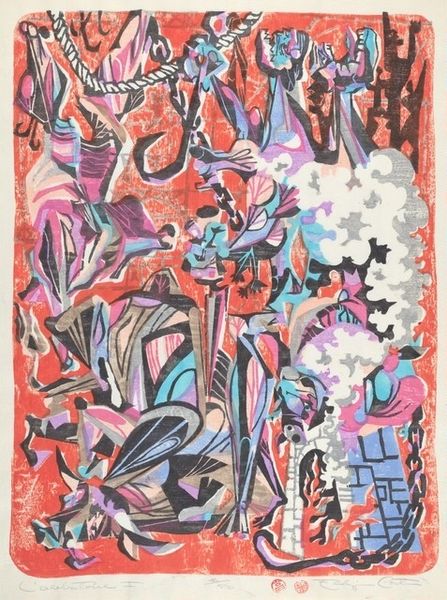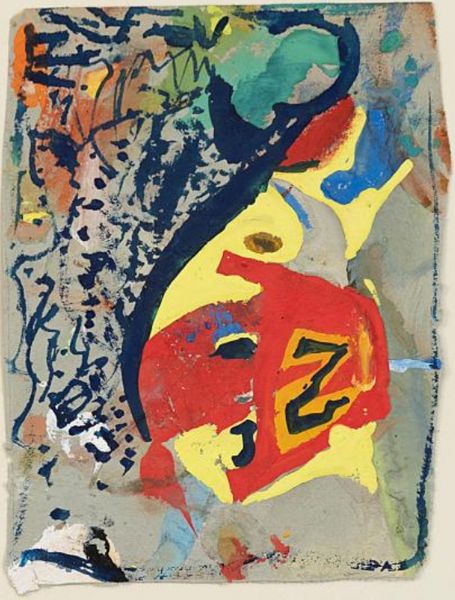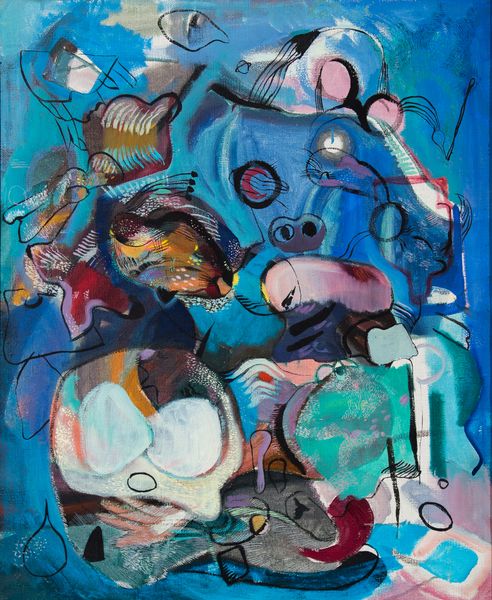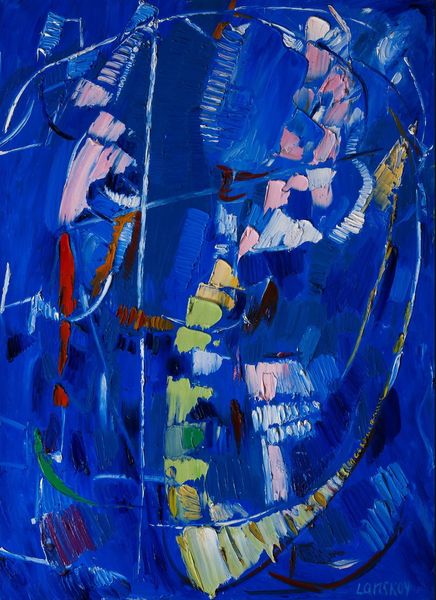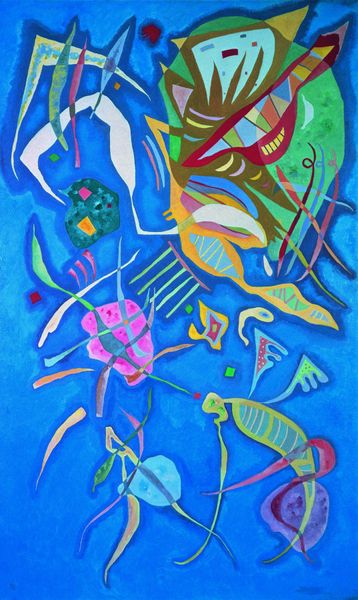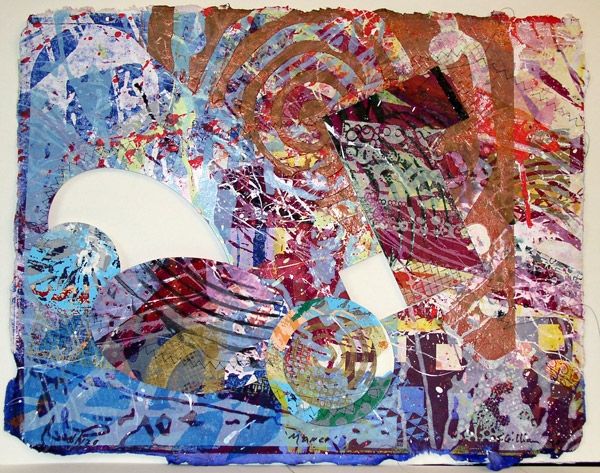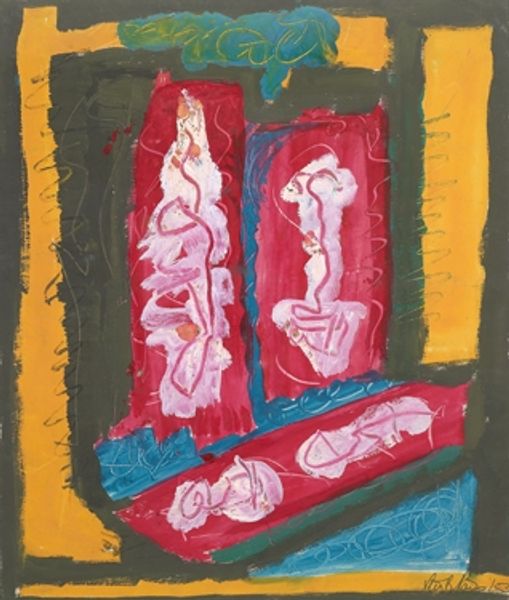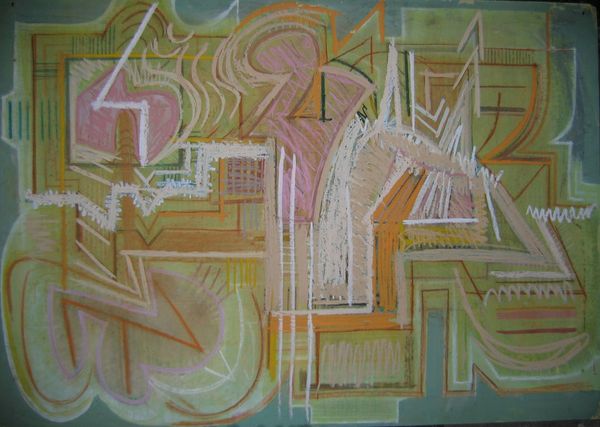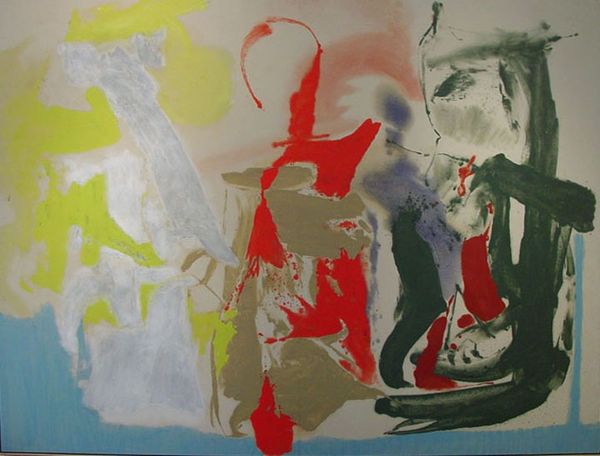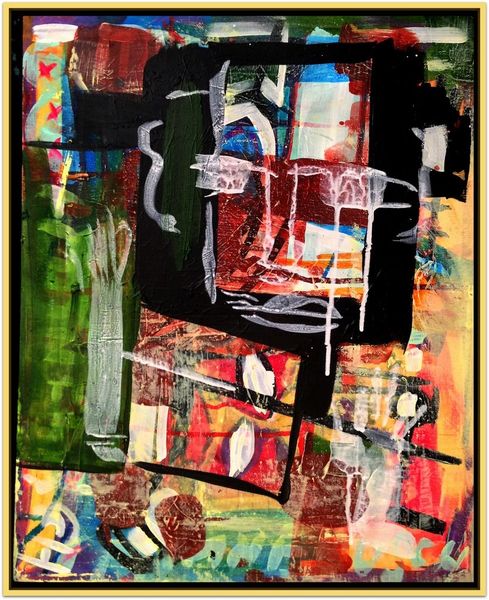
Copyright: Constantin Flondor,Fair Use
Editor: This is "The Marvelous Seed," created by Constantin Flondor in 1965, using acrylic paint and ink. There’s a vibrant energy in this abstract piece, a rawness in the application of line and form that I find captivating. What do you see in this work? Curator: I see a fascinating dialogue between the personal and the political, characteristic of art created in Eastern Europe during that period. The abstraction, though seemingly removed from concrete reality, speaks volumes about the social constraints and the subtle forms of resistance employed by artists like Flondor. This "seed," perhaps, is a metaphor for suppressed potential, a burgeoning future struggling for expression against a restrictive backdrop. Editor: So, the abstraction is a language in itself, a way to circumvent censorship perhaps? Curator: Precisely. The biomorphic shapes and the non-representational forms can be read as a coded commentary on societal norms. The act of abstracting itself becomes a political gesture, a refusal to conform to prescribed artistic styles that might have served propaganda. How does the palette strike you? Editor: I hadn’t thought about the color choices politically, but the muted reds certainly evoke a sense of something suppressed, even smoldering beneath the surface. Curator: Consider also the context: 1965. The seeds of the Prague Spring are being sown, dissent is subtly brewing. This work isn’t just about abstract form; it’s a document of a specific time and place, reflecting the tensions and hopes of a generation. How might feminist theory further illuminate the symbolism here? Editor: That’s really insightful. I hadn’t considered that angle, but viewing the “seed” as feminine potential and the surrounding shapes as forces of control certainly gives the work added depth. Thanks, that’s changed my understanding entirely. Curator: Art from this era is so rich. By analyzing it through the lenses of history, gender, and politics, we can gain a deeper appreciation, not just for the aesthetics, but also for the enduring human spirit it embodies.
Comments
No comments
Be the first to comment and join the conversation on the ultimate creative platform.
